
Global economic growth over the past half-century has changed our world unrecognisably, driving exponential improvements in health, knowledge and standards of living. Yet this has come at a huge cost to nature and the stability of Earth’s operating systems that sustain us. Since 1970, global GDP has increased four times, the extraction of living materials from nature has tripled and the world’s human population has doubled, along with an enormous trend towards urbanisation. People living in cities now account for 50% of the global population.
Trade has exploded; the value of exports rose 200-fold from 1970 to 2017, with the largest increases in developed countries. This boom has enabled higher-income countries to increase their consumption even though nature, within their own boundaries, is relatively well protected; much of the added consumption is from nature’s contributions imported from lower-income countries, and these contributions are sometimes surrendered for little economic growth.
THE COST OF GROWTH
The biodiversity cost of the world’s expanding population and economic output has been significant. Since the industrial revolution, human activities have increasingly destroyed and degraded forests, grasslands, wetlands and other important ecosystems, threatening human well-being. Seventy-five percent of Earth’s ice-free land surface has already been altered significantly, most of the oceans are polluted, and more than 85% of the area of wetlands has been lost. This destruction of ecosystems has led to one million species (500 000 animals and plants and 500 000 insects) being threatened with extinction.
Diese Geschichte stammt aus der October 02, 2020-Ausgabe von Farmer's Weekly.
Starten Sie Ihre 7-tägige kostenlose Testversion von Magzter GOLD, um auf Tausende kuratierte Premium-Storys sowie über 8.000 Zeitschriften und Zeitungen zuzugreifen.
Bereits Abonnent ? Anmelden
Diese Geschichte stammt aus der October 02, 2020-Ausgabe von Farmer's Weekly.
Starten Sie Ihre 7-tägige kostenlose Testversion von Magzter GOLD, um auf Tausende kuratierte Premium-Storys sowie über 8.000 Zeitschriften und Zeitungen zuzugreifen.
Bereits Abonnent? Anmelden

The oxwagon: a symbol of work, endurance and innovation
The oxwagon has become synonymous with the Great Trek, but few people know that the oxen bartered by the Khoikhoi were actually well-trained animals that responded to voice commands. Lucille Davie reports.
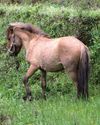
How to treat horses suffering from piroplasmosis
Babesia equi in horses is a notifiable disease in parts of the US, but not in South Africa. It causes fatal anaemia, warns Dr Mac.

All-electric 'Jaecoo's Jimny' is coming to SA!
This cute all-electric off-roader is on its way to South Africa and we've had a quick drive. Here's all you need to know about the Jaecoo J6.
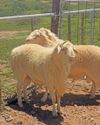
Practical guidelines to prevent stock theft
Laurence Palmer, a security consultant, lists some practical advice that farmers can follow to prevent stock theft.
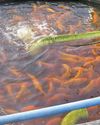
Understanding the economics of aquaponics.
Leslie Ter Morshuizen explains the economics of aquaponics production and best-grown crops.
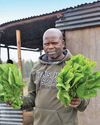
Mondi Zimele develops farmers
KZN business uses farming for economic development of province
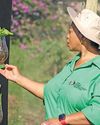
Township agriculture, rabies campaign launched
In a push to ensure food security in communities, the KwaZuluNatal (KZN) government has implemented a comprehensive agricultural programme designed to stimulate township economies.

Demand for Australian lamb grows
Meat and Livestock Australia (MLA) has said that American demand for Australian lamb has risen significantly since December.

KwaZulu-Natal gains 180 agriculture graduates
Joy could be seen throughout the Olive Convention Centre in Durban, KwaZulu-Natal (KZN), as 180 students, the class of 2023, achieved a significant milestone at a joint graduation ceremony.
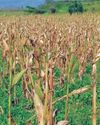
Farmers warned not to plant GM maize in Zimbabwe
Vangelis Haritatos, Zimbabwe's deputy minister of lands, agriculture, fisheries, water and rural development, has issued a stern warning to the country's maize growers that no imported genetically modified (GM) maize may be used as seeds.